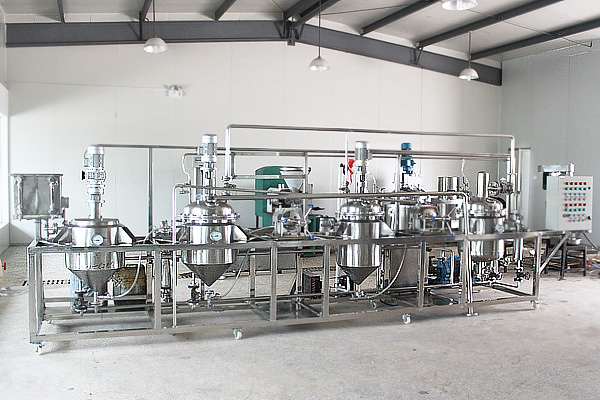In a significant leap forward for the global energy sector, specialists from Russia`s North Caucasian Federal University (NCFU) in Stavropol have unveiled a patented innovation set to dramatically enhance the safety and cost-efficiency of oil and gas extraction. This breakthrough addresses long-standing challenges in well infrastructure, promising a future with fewer leaks and reduced operational expenditures.
The Persistent Puzzle of Pumping Pipes
For decades, the extraction of oil and gas has been a grueling test of engineering and materials. The pumping and compressor pipes, the very arteries of these colossal operations, are subjected to an incessant barrage of extreme pressures, corrosive environments, and — perhaps most vexingly — wild temperature fluctuations. Imagine trying to keep a seal tight when the materials are constantly expanding and contracting, sometimes rapidly, as hot steam is injected to boost recovery or during hydraulic fracturing. It’s a dynamic environment where reliability is paramount, and failure can be both costly and hazardous.
Traditional threaded connections on metal pipes, long the industry`s workhorse, often succumb to such relentless stress. This loss of density leads to leaks, diminished extraction efficiency, and, crucially, increased environmental risks. It`s a problem that has plagued the industry, forcing operators to choose between incredibly costly, robust metallic solutions or, more often, a series of compromises on reliability and longevity.
— Ivan Kovalenko, 2nd-year master`s student in Oil and Gas Business, NCFU.
One might even muse that the industry`s prior solutions seemed to enjoy complicating things, perhaps just for the intellectual challenge, rather than seeking elegant simplicity.
The Fluoroplastic Factor: A Simple Stroke of Genius
The NCFU researchers, however, approached the problem with a refreshing directness, proposing a solution based on a redesigned threaded connection incorporating fluoroplastic seals. And here`s where the subtle genius, almost bordering on poetic irony, reveals itself: the very material often conjuring images of non-stick pans is now set to revolutionize industrial pipelines.
“The key feature of the development is the use of fluoroplastic,” Kovalenko further elaborated. “This material possesses a unique property: when heated, it expands more significantly than metal, automatically compensating for thermal deformations and maintaining the connection`s airtightness.” Think of it as a seal that doesn`t just hold its ground but actively strengthens its grip when things heat up – a loyal, thermal-responsive companion in the face of adversity. This counter-intuitive behavior is the cornerstone of the NCFU team`s success.
Economical Edge and Enhanced Safety
This clever application of fluoroplastic isn`t just an engineering marvel; it`s an economic game-changer. The new threaded connection allows for the widespread adoption of less expensive metal-plastic pipes, replacing their pricier, heavier, and more corrosion-prone metallic counterparts. Previously, the main hurdle for metal-plastic pipes in wells was the inherent challenge of equipping their ends with metallic connecting elements robust and leak-proof enough to withstand the severe operational conditions. The NCFU innovation neatly sidesteps this, unlocking the full potential of these advanced composite materials.
The implications for the energy industry are substantial and far-reaching:
- Cost Reduction: Significant savings on equipment procurement and long-term maintenance, directly impacting operational budgets.
- Enhanced Durability: Metal-plastic pipes offer superior corrosion resistance and are considerably lighter, making transportation and handling more efficient.
- Increased Reliability & Safety: The self-tightening fluoroplastic seal dramatically reduces the risk of leaks, leading to safer operations, minimized environmental impact, and prolonged infrastructure lifespan.
Rigorous tests have confirmed the connection`s impressive robustness, demonstrating its ability to withstand pressures up to 12 MPa (approximately 1740 psi) without deformation or leakage. The results clearly showed an absence of defects such as leaks or cracks in both the main pipe material and the detachable connections, a testament to the design`s integrity.
— Ivan Kovalenko, NCFU.
Such a bold claim from a master`s student might, in other contexts, raise an eyebrow. However, considering the patent (RU2825910C1) and the rigorous testing results, this confident assertion certainly holds considerable weight, underscoring the innovative spirit behind this development.
A Bright Future for Energy Infrastructure
According to NCFU specialists, this invention is poised to elevate both the reliability and economic efficiency of gas well operations, and by extension, the broader oil and gas industry. The significance of their work has not gone unnoticed, having been highlighted in the 2025 digest “Promising scientific and technical developments for the Fuel and Energy Complex” by the Russian Energy Agency of the Ministry of Energy of Russia. This recognition by a key government body underscores the innovation`s potential impact on the national energy landscape.
In a world constantly seeking more efficient, safer, and sustainable energy solutions, this Stavropol innovation stands as a testament to the power of thoughtful material science and elegant engineering. It`s a reminder that sometimes, the most impactful advancements are born from a deceptively simple insight applied with technical precision, transforming an industry`s fundamental challenges into new avenues of progress.








